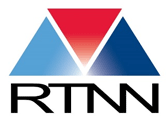
On November 10, the Carolina Science Symposium (CSS) was held at NC State’s McKimmon Center. This event brought together over one hundred people from universities, non-profits, and industry. Attendees learned about ongoing work in diverse scientific disciplines in a series of talks and a student poster session. Dr. Yong Zhang from the Electrical and Computer Engineering Department at the University of North Carolina at Charlotte opened the symposium. He discussed his work in light effect transistors for high speed and low energy switching. Dr. Jacqueline Cole (UNC/NC State Joint Department of Biomedical Engineering) highlighted her research in the role of vascular structure and perfusion in bone mechanics and health. Ian Haehnlein from Starfire Industries described the technique of high power impulse magnetron sputtering and its capabilities. Dr. Michael Daniele (NC State Department of Electrical and Computer Engineering) talked about his work in wearable biosensors and bioelectronic systems. These invited speakers were joined by students from across North Carolina: Islam Sayed (NC State), Michael Dryzer (Elon University), Ryan Fox (UNC), and Manish Sharma (North Carolina A&T State University).
Over $2,000 was awarded in prizes. Winners for best student oral presentations were Ryan Fox and Islam Sayed. Awardees for best poster included Michael Spencer, Zhihui Cheng, Tasso von Windheim, and Ashish Kapoor. Hanhan Zhou took home the Hans Stadelmaier Award. The AIF Best Paper awards went to Kate Marusak and Nathalia Ortiz.


A photo contest was held in honor of Mike Rigsbee. Tasso von Windheim won for the black and white image, “Happy Accidents,” depicting molybdenum oxide crystals formed using a microwave plasma chemical vapor deposition process (left). Sahil Tahiliani won in the color competition with the image, “Blood Trapped in a Vessel,” showing blood cells (false colored red) in a vessel within a lung tissue section from a mouse exposed to ceria nanoparticles (right).
This annual event occurs each November. If you are interested in learning more or hearing about upcoming events, please contact rtnanonetwork@ncsu.edu.


